Racs Csaba
Isten régi-új üdvössége A teremtés képe és Isten üdvözítő akarata a Biblia keret- szövegeiben
Tartalom
Tartalom: 1. Tematika és célkitűzés; 2. Az ó- és újszövetségi kánon egysége; 2.1. Az ószövetségi kánon koherenciája; 2.2. A Tóra, illetve a Teremtés könyvének kánonban betöltött szerepe; 2.3. Malakiás könyve és az ó- és újszövetségi üdvtörténet egysége; 3. Az egyetemes üdvösség a P és a J teremtéstörténetekben; 3.1. Az egyetemes üdvösség perspektívájára a P teremtéstörténetben (Ter 1,1–2,3); 3.1.1. A világosság; 3.1.2. Az erkölcsi rend; 3.1.3. A teremtett mindenség Isten szentélye (Ter 1,1–2,3); 3.1.4. Az áldás és az élet; 3.2. Az egyetemes üdvösség perspektívájára a J teremtéstörténetben (Ter 2,4–25); 3.2.1. Az ember szemszögéből bemutatott teremtés; 3.2.2. Isten az ember közvetlenül teremti; 3.2.3. A szentély képe a paradicsomkertben; 3.2.4. A paradicsomi folyók; 4. A Jel 21,1–22,5: a végső üdvösség, az üdvtörténet beteljesedése. Csaba Racs: The Old and New Salvation of God: The Image of Creation and God’s Redemptive Will in the Frame Texts of the Bible The theme of God’s universal redemptive will is particularly extensive in relation to the Old and New Testament. Embracing the current eschatological thematic focus of the journal providing a venue for its publication, the present paper examines the broader context – the very system – that supplies a frame and horizon for biblical passages relevant to God’s general redemptive will in the Old and New Testament: God’s universal redemptive will in the beginning and its fulfilment at the end of time. – Two aspects must be considered. The first aspect relates to the canonical unity of the Old and New Testament, constituting the progression of the biblical History of Salvation from Genesis to Revelation. It is argued that, in this respect, of outstanding importance are the Old Testament Canon – first and foremost, the Hebrew Bible (the tripartite whole of the Torah, the Prophets and the Writings) – and the internal logic of its structure, with special emphasis on the function of Genesis, as well as on the linking role of Malachi towards the New Testament (Mal. 3:1 [22]23-24). The second aspect concerns elements of the P (Gen. 1:1-2:3) and J (Gen. 2:4-25) creation narratives relative to the universal redemptive will of God, as well as – albeit only at the level of anticipation – the fulfilment of these in the unity of Rev 21:1-22:5 on ultimate redemption and the consummation of the History of Salvation. From this perspective, the following five elements of the two narratives may be described as consequential: light (P); the ethical system of creation (P); the created universe as the sanctuary of God (P & J); anthropocentric creation:15 blessing and life (P & J); the rivers of Paradise (J). – The study primarily draws on the canonical and intertextual connections of the texts – wherever necessary – presenting their links and interpretive frames across the Old and New Testament.

